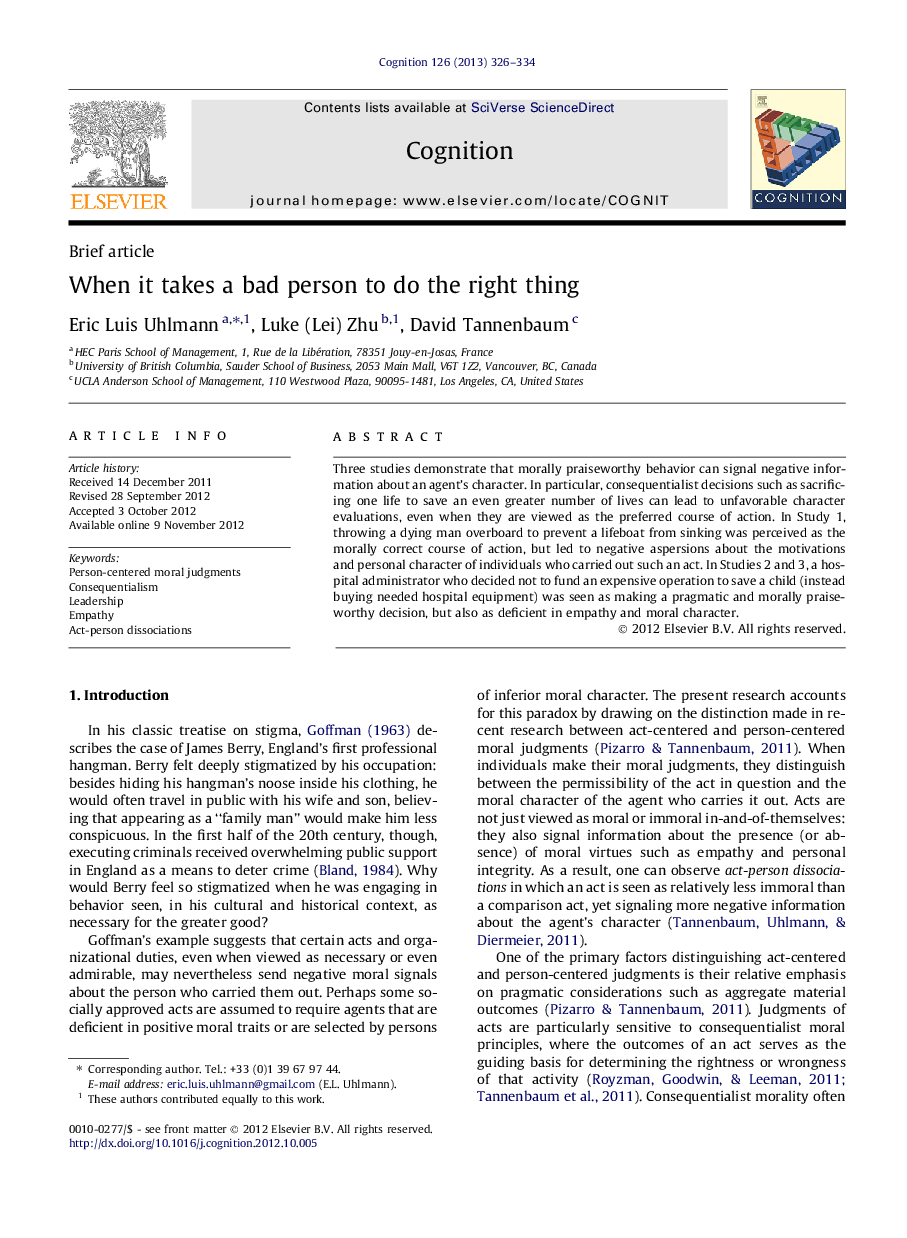| Article ID | Journal | Published Year | Pages | File Type |
|---|---|---|---|---|
| 926466 | Cognition | 2013 | 9 Pages |
Three studies demonstrate that morally praiseworthy behavior can signal negative information about an agent’s character. In particular, consequentialist decisions such as sacrificing one life to save an even greater number of lives can lead to unfavorable character evaluations, even when they are viewed as the preferred course of action. In Study 1, throwing a dying man overboard to prevent a lifeboat from sinking was perceived as the morally correct course of action, but led to negative aspersions about the motivations and personal character of individuals who carried out such an act. In Studies 2 and 3, a hospital administrator who decided not to fund an expensive operation to save a child (instead buying needed hospital equipment) was seen as making a pragmatic and morally praiseworthy decision, but also as deficient in empathy and moral character.
